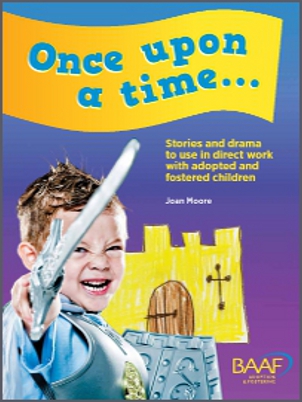
Once upon a time…
£14.95
Direct work is recognised as an important and valuable part of helping traumatised children to deal with difficult early experiences. In particular, creative and story-based play can have a vital role in the healing process, promoting the child's understanding, encouraging greater engagement between child and worker, and providing a non-threatening way for the child to discuss what has happened to them, with the medium of fiction providing a distancing "safety net".
Once upon a time... will inform, educate and stimulate. It contains a rich compendium of stories and drama - original, adapted, popular and made up by children - which explore how using storytelling and play in direct work with children can help both parents/carers and their child to build rapport and improve their relationship.
Who is this book for?
Child care professionals working with adopted and fostered children, adoptive parents and foster carers.
What you will find in this book
Once upon a time... is full of imaginative and thought-provoking examples of stories, dramatic play and role play which illustrate how to play with a child in an emotionally meaningful way, how to use stories to enhance understanding and how stimulating the child's imagination can enhance problem solving skills and self-esteem.
Subjects covered include:
- attachment difficulties
- challenging behaviour
- lack of empowerment for children who have had chaotic early lives
- life history work
- communication between parent/carer and child
Author
Joan Moore is a Dramatherapist, Play Therapist, Trainer, freelance Adoption Support Agency and registered supervisor with over 30 years’ experience in social work.
NOW AVAILABLE IN EBOOK AND HARD COPY
This title is now available in digital-only format for immediate access. Purchases are held in your own personalised online library and accessed via your browser or through the app on your phone or tablet.
Questions about eBooks? Check out our FAQs£14.95
Reviews
The author has created a very useful tool for charting and evaluating the child’s progress, which covers the adoptive/foster family, the child’s developmental history and current situation, and ways to measure the emotional impact during the course of the play, development of imaginative and relational skills, control of affect (feelings), health and self care, progress in school and relationships at home.
Dr Barbara Mitchels, Seen & Heard
